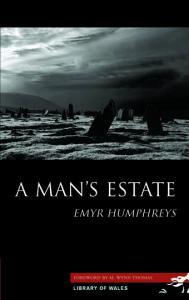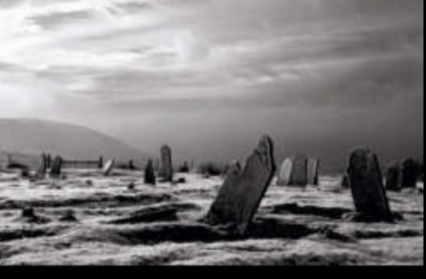Jon Gower reviews Emyr Humphreys’ A Man’s Estate, a gothic novel about family life and the human condition set in North West Wales.

As gothic and dysfunctional families go, the one that inhabits Y Glyn, a north-
We are the most important family in the district, but our time is running out. By being what we are, we constitute the greatest bulwark in this small corner of Wales against the forces of change.
There are Hannah – mid-thirties, spinster, dreamer and a desperate optimist – who shares the ancient pile with her absurd egotist mother, and uber-
Their evenings were devoted to melancholy silence, as if their spirits had left them and had gone, bound together, riding the cold currents of the wind that leaves this world.
As if that wasn’t cheerless enough ‘…there are among the dead some who are never far from our table.’ Furthermore, there are lots of breathing problems in the house, thus lots of asthma powders, but even without the bronchial problems which beset them, life at Y Glyn would be suffocating enough. Hannah would be much better, it seems were she given a little dose of love, and she is quite smitten with the local preacher, Idris Powell, but he’s making the beast with two backs with Ada, one of the fulcrums on which this expansive, wise novel about the human condition, or man’s estate, turns.
Ada is a survivor, using her womanly guile and whiles to get by, be it as lover to the overweight garage owner Wally or as the paid lover of the local doctor, who gives her money to open an upscale guest house, with the intention of getting a drinks’ license. But this is a chapel community and organized religion, though waning, is still strong. So the cocktails never flow.
Meanwhile, the bird-
This is a dark, often bleak novel about love thwarted, or absent or cruelly twisted into something else. It’s also about a time of change, as science marches to displace or replace faith and working the land is about to become thoroughly mechanical. Written by Humphreys in Austria, it is also full of ghosts, drifting in from the past, able to change the present with their troubling guilt.
A Man’s Estate is another clear and perfect reason to laud the gifts bestowed on Emyr Humphreys, the most detailed chronicler of twentieth-century Wales, and author of capacious, intuitive fictions, properly lauded by such scholars as M. Wynn Thomas. A Man’s Estate, though weightily brooding and unburdened by too much joy, or very much redemption, uses one corner of the country to examine the stuff of life, how troubling it can be, though how easily explained. We are always wanting. And found wanting. Maybe, in the final rub, our wanting is who and what we are.
Emyr Humphrey’s A Man’s Estate is available now.
Jon Gower is an author and regular contributor to Wales Arts Review.












